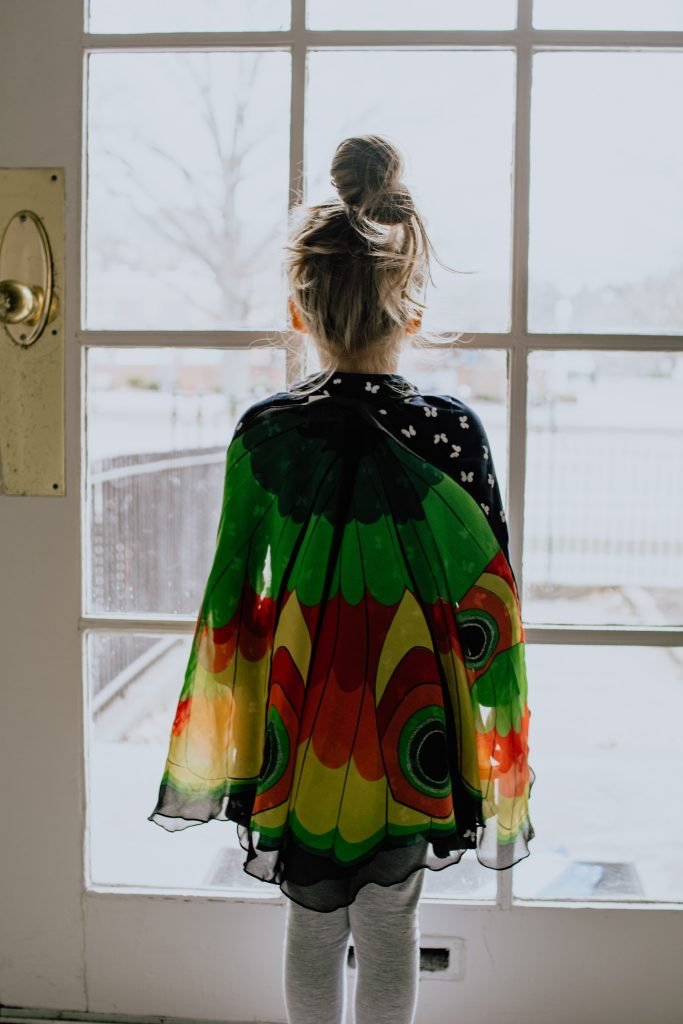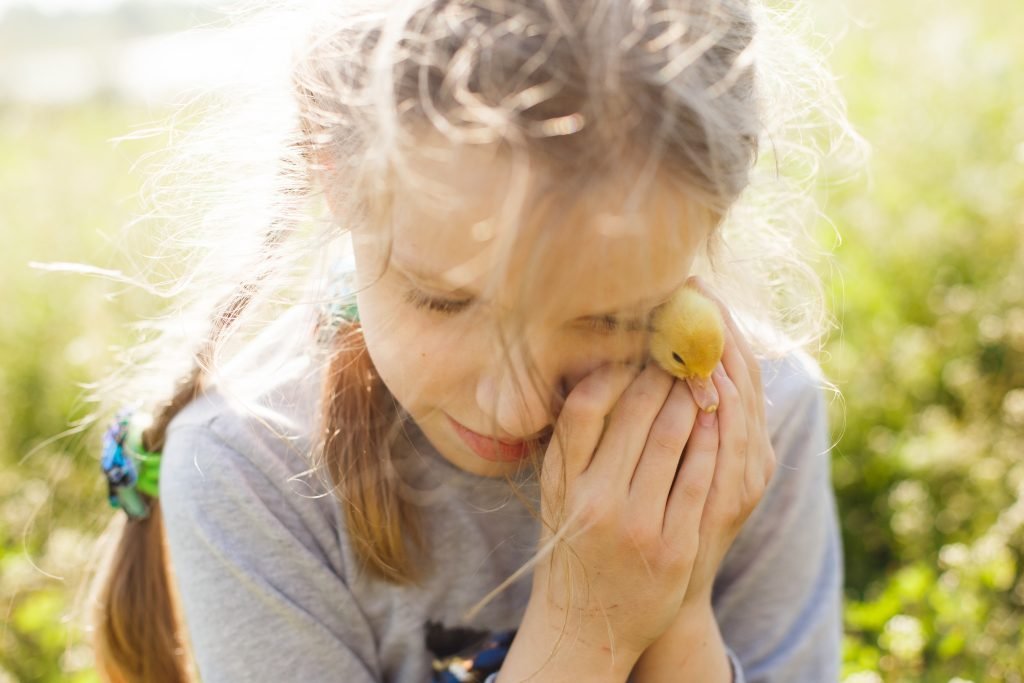Learn How Understanding RSD (Rejections Sensitivity Dysphoria) Can Help You To Support Your Child (And Yourself)

The emotional experience that served as an undercurrent of my childhood was hypervigilance. I can recall constantly scanning the people around me for signs of disapproval. Checking in with my mother hundreds of times a day to see if she was ‘okay’ was a standard daily occurrence. For some reason, I just could not shake the feeling that I had done something wrong to upset her or that I was in trouble.
I have always been the ‘sensitive’ girl. Any form of feedback would send me into a panic. Any attempt to talk to me about my behaviour or something I could improve on and I would start crying, shut down and become temporarily nonverbal. This was all while my internal dialogue repeated the message of how useless I was.
Now, from reading the above account of my childhood experience, I wouldn’t blame you if you thought that my childhood home was abusive in some way. After all, the predominant message about hypervigilance in childhood is that there had to be some type of childhood trauma. However, I feel it is important that you should know that although my parents had their flaws (don’t we all) they were good parents who did the best they could.
And…
It is also true that I do have trauma from my childhood. However much of this is due to living the majority of my life as an undiagnosed AuDHD person. This is something I don’t blame my parents for – they had no idea (and neither did I).
My Experience With RSD
RSD is the filter through which I have viewed my world, my whole life. It was a huge contributing factor to my childhood experience of hypervigilance, my sensitivity to feedback and my need for constant reassurance.
It has significantly affected how I am in relationships with other people. RSD has also been a huge barrier for me to overcome in my career. My early career as a teacher was particularly hard for me as this relied heavily on feedback, mentoring and growth cycles to help me to be a better teacher. Appraisals were particularly brutal for me and would send me into a spiral of anxiety. I was convinced that I had done some unspeakable thing that would get me into trouble. I am not lying or exaggerating when I say that going into the appraisal interview felt like I was going to die.
As a person who experiences RSD, my brain is wired to interpret neutral events/feedback as negative, and my brain is wired to discount positive events/feedback and my brain is wired to amplify the negative events/feedback. However, it wasn’t until I identified that I had ADHD that I recognised what RSD was and how it affected me. I thought everyone struggled in this way.
What Is Rejection Sensitivity Dysphoria?
Rejection sensitivity dysphoria (RSD) is when you experience severe emotional pain because of failure or feeling rejected.
RSD is linked to ADHD, Autism, BPD and CPTSD and experts suspect it happens due to differences in brain structure. These differences mean your brain can’t regulate rejection-related emotions and behaviours, making them much more intense.
According to ADDitude Magazine,
Rejection sensitive dysphoria (RSD) is extreme emotional sensitivity and pain triggered by the perception that a person has been rejected or criticized by important people in their life. It may also be triggered by a sense of falling short—failing to meet their own high standards or others’ expectations.
William Dodson, M.D., LF-APA
Neurobiological Factors For RSD in ADHD
The way that an Autistic and or ADHDer’s nervous system is wired means that we experience the world more intensely.
For our neurodivergent children and teens co-occurring conditions such as PDA, poor interoception or alexithymia can make it difficult to identify emotions and feelings in our bodies and make it challenging to read the facial cues and body language of others.
These co-occurring conditions can intensify feelings of rejection as it can make it difficult to interpret visual feedback from others. As the neurodivergent child’s nervous system is more sensitive to perceived threats, their brain ‘fills in the blanks’ and causes them to read the interaction as rejection. (Hence the regular need for reassurance or hypervigilance in the example from my childhood).
Social Factors For RSD In ADHD
Research has shown that neurodivergent individuals are generally perceived as less likable than their neurotypical peers. Many of our children’s ADHD and autistic traits are often misinterpreted as ‘inappropriate’ or ‘bad behaviour’. ADHD and autistic children are often shamed or punished for traits that they have little or no control over.
It is estimated that many neurodivergent children would have heard on average 20,000 negative things about them, by age 10.
Little ‘t’ trauma – the constant drip feed of invalidation, misattunement and assumptions of our behaviors. Trauma and rejection sensitizes so that we see a threat when it might not be there
Yael Clark

What’s Really Behind Your ADHD Child’s RSD?
The predominant emotion that fuels our children’s RSD is shame and the belief that they are somehow inherently ‘bad’, ‘broken’, ‘unlovable’ and unworthy of acceptance and belonging.
The intense feelings of shame lead to anxiety and their nervous system sensing a threat to their safety and moving into defence mode.
What naturally follows are behaviours stemming from their brain’s fight, flight, fawn, and freeze responses.
Examples of this are:
- Defensive behaviours such as explosiveness, crying, or sarcasm
- People-pleasing
- Withdrawal
How RSD Can Affect You As A Parent
It is important to note that if your child is affected by RSD it is highly likely that you are affected by RSD too and that you may need some support.
RSD can affect you in the following ways in your parenting:
- RSD can really affect how we parent our children, leading us to see non-compliance, seeking autonomy or our children’s behaviours as rejection.
- We can perceive feedback from our partner about our parenting as criticism which can lead to arguments.
- It can prevent us from getting help for ourselves or our children because of the pain of being perceived as a ‘bad parent’ by authorities.
Signs That Your ADHD Child Is Affected By RSD
RSD can be hard for parents to pick up on. Your child may be severely impacted by RSD in many profound ways but the outward signs may be subtle.
As a parent, you are most likely to see RSD show up in your child’s behaviours. However, you might not immediately make the correlation between the behaviours and RSD. This is especially true if you were taught to see behaviours as a lack of respect or your child being ‘bad’ or not ‘trying hard enough’.
Here are signs that your child may be affected by RSD.
Behaviours At Home
- Hypervigilance in relation to other people’s emotions.
- Needing constant reassurance or asking if you are angry or if they are in trouble.
- Rigid ‘rule-following’.
- Sneaking, lying or agreeing to something to avoid saying ‘No’ and then doing the opposite.
- Becoming upset or appearing to be jealous when you spend time with or praise a sibling.
- Becoming upset when you compliment or talk about one of their friends or a sibling in a positive light.
- Interpreting your busyness or inattentiveness as rejection.
- Physical symptoms like headaches and stomach aches.
- Explosive emotions meltdowns or crying at seemingly minor things.
- Resistance to parenting strategies that work with other kids like labelling feelings.

Behaviours At School
- Anxiety over going to school or ‘school avoidance’.
- Thinking they are in ‘trouble’ every time a teacher or adult asks to speak with them.
- Spending excessive amounts of time on projects or assignments to ensure there are no mistakes (so it is above feedback)
- Struggles with asking for help.
- Avoiding starting assignments because of fear they will fail.
- Assuming no one likes them.
- Feeling extremely possessive of friends or upset by seeing friends hanging out with other friends.
- Bending over backward to get on someone’s good side (people pleasers) to the detriment of their own needs or safety.
How To Support Your ADHD Child With RSD
When we keep in mind that the main emotion behind RSD is shame it gives us a helpful framework for how to help our children and ourselves.
According to the work of Brene Brown, the antidote for shame is empathy and connection.
“Shame derives its power from being unspeakable.
What’s the Most Powerful Antidote to Shame?
If you put shame in a Petri dish, it needs three things to grow exponentially: secrecy, silence and judgment. If you put the same amount of shame in a Petri dish and douse it with empathy, it can’t survive,”
Brene Brown
How To Adapt Our Parenting Approach To Support Our Children With RSD?
Here are three important things you can do as a parent to support your child with RSD.
RRE – Recognition Responsive Euphoria
RRE is the opposite of RSD and is the feeling of elation and pleasure an individual gets from being recognised for something they do well. Many neurodivergent children have shattered self-esteem. You can harness the positive effects of RRE by intentionally breathing life into our children through praise.
Connection Focused Parenting
When we consider the resounding research into shame and connection we can see the importance of providing emotional and relational safety for our children. We protect our children from the harmful effects of shame by focusing on connection, empathy, compassion and acceptance in our interactions with them.
Self-Compassion
Because we cannot give our children what we don’t have we need to meet ourselves with through self-connection, self-compassion and self-acceptance.
If you would like some support with knowing how to parent a child with RSD connect with me for a FREE Planning Call
Meet The Person Who Wrote This Blog

Tanya Valentin is an AuDHD person, mum of three, family coach, author and podcaster.
Tanya is an educator/coach with 25 years of experience working with children and families. She specialises in guiding parents of Autistic & ADHD children and teens through burnout recovery.
She is the founder of the Autistic Burnout Care and Recovery program for parents and the host of the Parenting Neurodivergent Kids Together podcast.
Tanya’s work combines education, emotional support, and practical strategies, reflecting her commitment to helping families create sustainable, connected relationships during difficult times.
Need support? Book a FREE 30-minute call with Tanya
